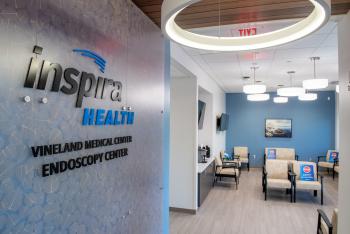Could you have a chronic gastrointestinal condition? Learn about the differences between irritable...
Read More
Good digestive health is vital for overall well-being, yet many people overlook the signs of digestive disorders or delay seeking treatment.
From treating chronic discomfort to early diagnosis through preventive screenings, a gastroenterologist’s guidance can make a major difference in your quality of life.
“A gastroenterologist is a medical specialist that diagnoses, treats and manages conditions affecting the digestive system, including the stomach, intestines, liver, pancreas and gallbladder,” said Riyadh S. Hammod, MD a gastroenterologist at Inspira Medical Center Vineland. “They use diagnostic tools like endoscopy, colonoscopy and imaging to evaluate your symptoms and determine the best course of treatment.”
While both specialists focus on digestive health, a gastroenterologist diagnoses and treats digestive conditions, including acid reflux, liver disease and inflammatory bowel disease (IBD). A colorectal doctor or surgeon specializes in disorders of the colon, rectum and anus, often performing surgical procedures to treat conditions like colorectal cancer, hemorrhoids and anal fissures.
Digestive issues can range from mild discomfort to serious conditions that require specialized care. Consider seeing a gastroenterologist if you experience:
A gastroenterologist can diagnose and manage a variety of conditions, including:
If digestive symptoms persist, seeking specialized care can help identify the root cause and provide effective treatment, improving your long-term health.
Preventive care is fundamental to your overall health. “A colonoscopy, a preventive exam screening used to look for changes in the large intestine and rectum, can detect precancerous growths early before they develop into cancer, significantly improving outcomes,” said Dr. Hammod. “Gastroenterologists can also help you manage risk factors for conditions like liver disease, monitor for acid reflux complications over time and offer guidance on maintaining a gut-healthy diet.”
New diagnostic and treatment options in gastroenterology include:
“Good digestion supports nutrient absorption, immune function and energy levels,” said Dr. Hammod. “Addressing digestive issues can alleviate discomfort, improve sleep and even enhance mental health.” A well-functioning digestive system is key to feeling your best. Take charge of your digestive health
Talk to your doctor about seeing a gastroenterology specialist if you have digestive discomfort or are due for a preventive screening. You can take proactive steps toward better health with specialized care, personalized treatment plans and advanced treatment options. Schedule a consultation today to start prioritizing your digestive well-being.
Schedule a Gastroenterology and Digestive Health Appointment.

Could you have a chronic gastrointestinal condition? Learn about the differences between irritable...
Read More
Crohn’s disease affects more than the gut—it can also cause skin conditions. From painful bumps to...
Read More
Inspira Health hosted an open house for its new outpatient endoscopy center, located in the Medical...
Read More